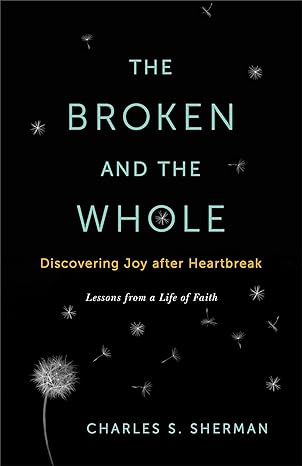Charles Sherman, a recently retired rabbi at Melrose B’nai Israel Emanu-El in Elkins Park, published “Transition Prompts a Look at Lessons Learned” in The Jewish Exponent.
The article describes Rabbi Sherman’s thoughts on retirement after 58 years on the pulpit, and the ways in which he feels “both contentment and ambivalence” about the change. An excerpt:
Retirement is no doubt a bit liberating with no timelines, no Holyday prep, no sermon critiques. But the transition from pulpit to pew also translates into an absence of definition and identity.
My decision to retire on Dec. 31 was rooted in a deep-seated feeling that it was “time.” While I knew I was preaching my last Holyday messages — and shared that with my faith community — there was an obvious lack of closure, and I recognize now a desire to share some reflections on what I learned over almost six decades of preaching.
Rabbi Sherman is also the author of “The Broken and The Whole, Discovering Joy After Heartbreak: Lessons From a Life of Faith.” From its description:
A powerful, inspiring memoir in the vein of When Bad Things Happen to Good People about the wisdom a rabbi gained after his young son suffered a catastrophic brain stem stroke that left him quadriplegic and dependent on a ventilator for each breath.
A wise, uplifting memoir about a rabbi’s search for understanding and his discovery of hope and joy after his young son suffered acatastrophic brain-stem stroke that left him a quadriplegic and dependent on a ventilator for each breath
As a young, ambitious rabbi at one of New York’s largest synagogues, Charles Sherman had high expectations for what his future would hold—a happy and healthy family, professional success, and recognition. Then, early one morning in 1986, everything changed. His son Eyal spiked a fever and was soon in serious respiratory distress. Doctors discovered a lesion on the four-year-old’s brain stem. Following high-risk surgery, Eyal suffered a stroke. Sherman and his wife later learned that their son would never walk, talk, feed himself, or breathe on his own again—yet his mind was entirely intact. He was still the curious, intelligent boy they had always known.
The ground had shifted beneath the Sherman family’s feet, yet over the next thirty years, they were able to find comfort, pleasure, and courage in one another, their community, their faith, and in the love they shared. The experience pointed Rabbi Sherman toward the answers to some of life’s biggest questions: To what lengths should parents go to protect their children? How can we maintain faith in God when tragedy occurs? Is it possible to experience joy alongside continuing heartbreak?
Now, with deep insight, refreshing honesty, humor, and intelligence, Charles Sherman reflects back on his life and describes his struggle to address and ultimately answer these questions. The Broken and the Whole is a moving, affecting, and inspiring meditation on what it means to embrace life after everything you’ve known has been shattered to pieces.


